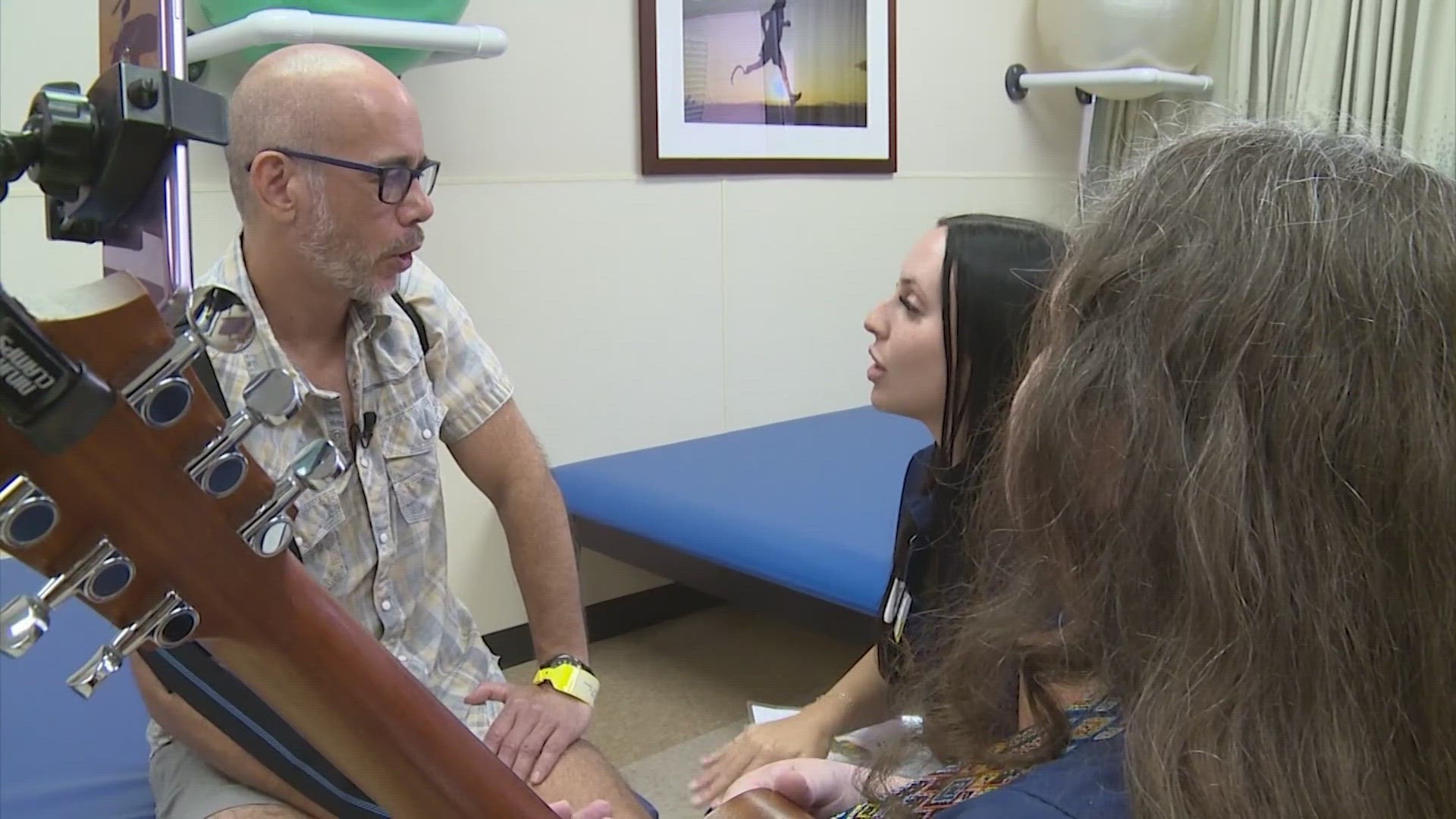HOUSTON — Jeremy Elbert suffered a stroke the first week of August.
After he collapsed at a martial arts class with friends, he was rushed to the hospital where he received treatment within an hour.
The Deer Park man lost movement on the right side of his body and the ability to understand and express speech.
“I could tell he knew who I was. We were both scared,” wife Kathy Elbert said.
A month after his stroke, Jeremy has regained a lot of the strength in his body. However, forming simple sentences is still hard work. Singing, on the other hand, is a different story.
During music therapy sessions, Elbert is still able to sing full songs from memory.
His doctor at TIRR Memorial Hermann said patients who suffer this kind of stroke seem to regain speech and confidence quicker with music therapy.
“The parts of the brain that serve language through music are different than the parts of the brain related to understanding or producing speech,” said Nikola Dragojlovic, DO, Brain injury physician with UTHealth Houston and TIRR Memorial Hermann. “You can use those parts of the brain that weren’t injured to be able to create meaningful speech and allow those parts of the brain to take over actions that were lost after the stroke or brain injury.”
However, music is more than therapy for Jeremy. As worship leader at his church, music has always been a big part of his life.
Their faith continues to play a major role in his recovery.
“He told me he loved me the other day when I hadn’t heard it in a while,” Kathy said.
Early treatment is important when someone suffers a stroke. Signs of a stroke include facial weakness, arm or leg weakness, and difficulty speaking.

